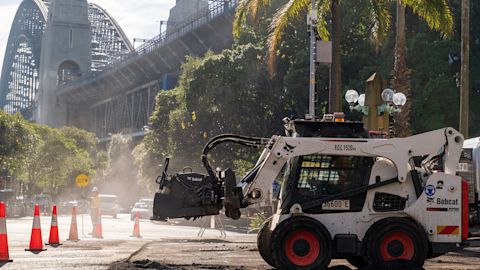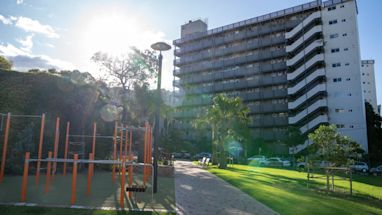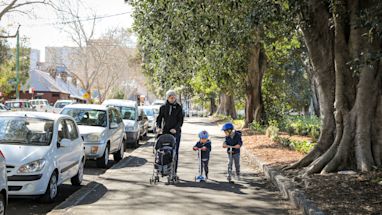The City of Sydney has carried out an ambitious program to renew dozens of roads in little more than a month – works that would normally take a year.
We streamlined our road renewal program this year to help minimise disruption and take advantage of some favourable conditions.
Why the new approach makes sense for our residents
We’re refreshing more than 47,000m² of local and regional roads under our control.
This work is essential to maintain road surfaces and keep the network of streets in the best condition possible.
For councils across metropolitan Sydney this work is spread out across the whole year, with most of it carried out towards the end of the financial year.
But this year, we wanted to do things differently.
“This idea came about as a way to minimise disruption to the community and streamline the program,” City of Sydney chief engineer Peter Shields said.
“We know contractors generally have workers ready to go at this time of year because most councils are in the planning phase of their capital works programs. Not us.
“We attacked the renewal program in a condensed period so we can get in and do the work and give the roads back to the community a lot faster.
“This kind of work takes a lot of planning and coordination, and we continue to work really well with the main contractors for this work, Sydney Civil and Downer EDI.”
While renewing roads comes with disruption, by doing it in a shorter time frame, and in winter when most people have doors and windows shut, we get long term gains with only short-term pain.
Planning for success
Planning for any kind of road renewal work doesn’t happen overnight. It takes months of site visits, planning meetings and getting approvals from everyone involved.
When we knew our contractors would have staff ready, we set about scoping the work for each street and identifying any special requirements.
“The next major challenge was planning all traffic setups for each job, which included applying for permits from external authorities well in advance,” Shields said.

This involved liaising with the Transport Management Centre, as well as Ausgrid and Jemena, and conducting searches for underground services.
“This process was not without its difficulties. Each job needed to be checked against dozens of other ongoing works in the area, ranging from private developments to public infrastructure utility works that occur nightly.”
And all this work is at the mercy of the weather.
“Even rain over a day or two can cause significant delays which means we had to be nimble and ready to quickly reschedule works and update approvals, permits and notify affected communities in time.”
An eye on sustainability
We continue to use nearly a quarter of recycled materials in our road renewal program.
It’s a mix of 20% reclaimed asphalt from other Sydney roads and 2.5% recycled crushed glass. This is equal to around 670,000 glass jars and more than 1,000 tonnes of reclaimed asphalt used to renew roads.
Residents are now enjoying smoother and more sustainable surfaces in Alexandria, Erskineville, Waterloo, Surry Hills, Millers Point, Paddington, Darlinghurst, Pyrmont, Ultimo, Glebe, The Rocks, Beaconsfield, Woolloomooloo and in the city centre.
The City of Sydney is one of 16 Sydney councils to sign up to ‘Paving the Way’, a joint initiative led by the Southern Sydney Regional Organisation of Councils aiming to use 100 million glass containers a year in the renewal of local roads.
We’ll continue to be out on Sydney’s streets carrying out urgent and essential maintenance on things like potholes.
Published 5 September 2024



